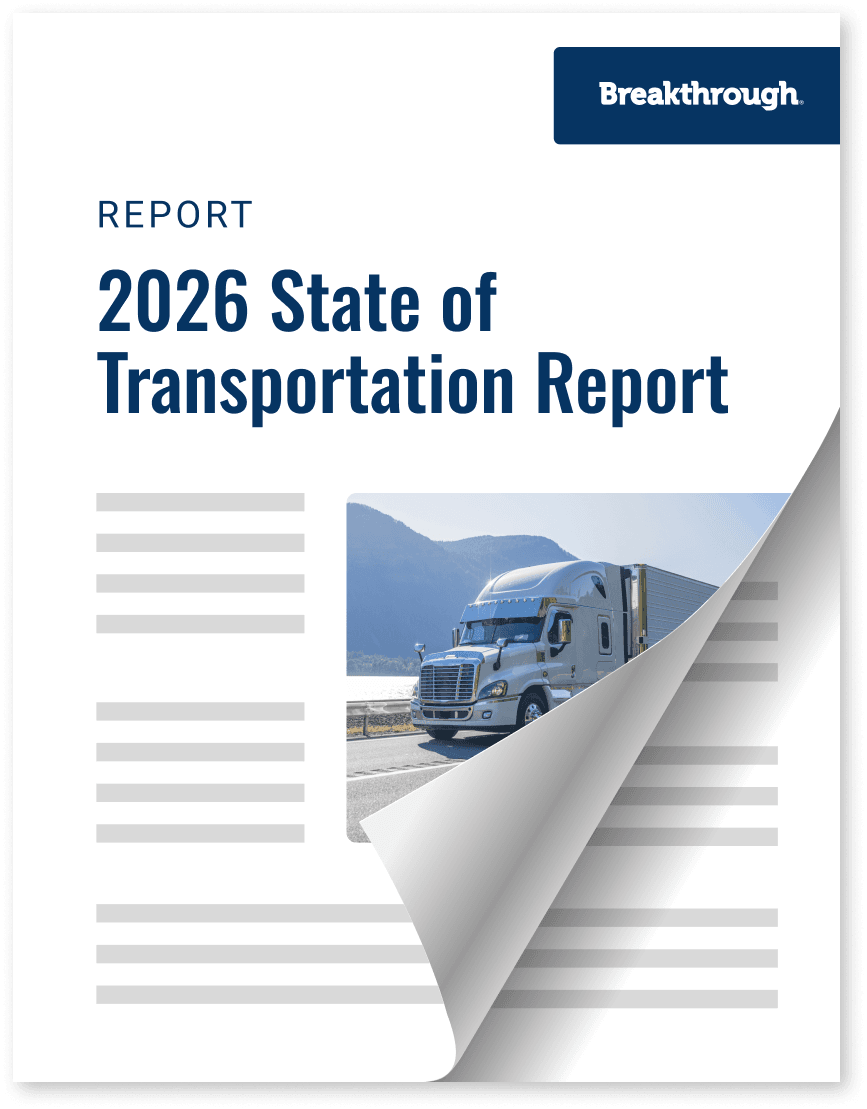2026 State of Transportation Report

Trending
Top Posts
Sustainability
How to Develop Cost-Effective Sustainable Transportation Strategies
7 min read
February 20, 2026
Transportation Strategy
A Shipper’s Guide to the European Union Emissions Trading System II
6 min read
February 19, 2026
Market Events
Connect with Breakthrough at These Spring 2026 Events
4 min read
February 18, 2026
4 min read
September 30, 2025

Share:
Table of contents
Browse the table of contents to jump straight to the part you’re looking for
In 2023, California enacted two landmark pieces of climate legislation: Senate Bill 253 (SB 253), the Climate Corporate Data Accountability Act, and Senate Bill 261 (SB 261), the Climate-related Financial Risk Reporting Program. These new laws introduce significant reporting requirements for large companies doing business in the state. While California published a preliminary list of covered companies on September 24, 2025, coverage may extend to additional businesses. It is crucial for organizations to begin preparing for the complex data collection required and to consider implementing sustainability initiatives to reduce emissions and mitigate climate-related risks.
SB 253 is a key component of the California Climate Disclosure Law. It requires U.S.-based companies that do business in California and generate more than $1 billion in annual revenue to publicly disclose their greenhouse gas (GHG) emissions.
The reporting timeline is phased:
Given the complexity of collecting and verifying this data, especially for scope 3, regulators will allow for some flexibility on timelines and penalties for companies that show a good faith effort to comply.
Effective January 1, 2026, SB 261 mandates that U.S.-based entities with over $500 million in annual revenue doing business in California report on their climate-related financial risks. These reports must be submitted every two years and made publicly available.
The law defines “climate-related financial risk” broadly, including any material risk posed to a company's:
Companies must detail these risks and outline the measures they have taken to reduce and adapt to them. To support transparency, a public docket for these reports will be open from December 1, 2025, to July 1, 2026.
These laws apply to private and public U.S.-based companies "doing business in California" that meet specific revenue thresholds:
While a preliminary list of affected companies has been released, the term "doing business in California" is broad. Any company meeting the revenue thresholds should proactively evaluate its status and prepare for compliance with the California Climate Disclosure Law.
Preparing for the California Climate Disclosure Law is a critical step for companies aiming to meet regulatory requirements. Navigating these new regulations may seem complex, but proactive preparation and effective carbon management can position your organization for success.
CleanMile is here to make that process seamless. Our comprehensive platform helps businesses track, plan, and execute their transportation emissions reduction goals with precision, ensuring alignment with California's disclosure requirements.
CleanMile
See how we can support your organization.


7 min read
February 20, 2026
Explore practical sustainable transportation strategies that reduce emissions and costs. Learn how to balance sustainability goals with operational efficiency.
Read more
6 min read
February 19, 2026
Understand the upcoming European Union Emissions Trading System II. Learn how new carbon pricing will impact road transport diesel costs and how to prepare your strategy.
Read more
4 min read
February 18, 2026
Join Breakthrough at industry events this spring. Meet with our experts to learn how you can cut costs and decarbonize your network.
Read more